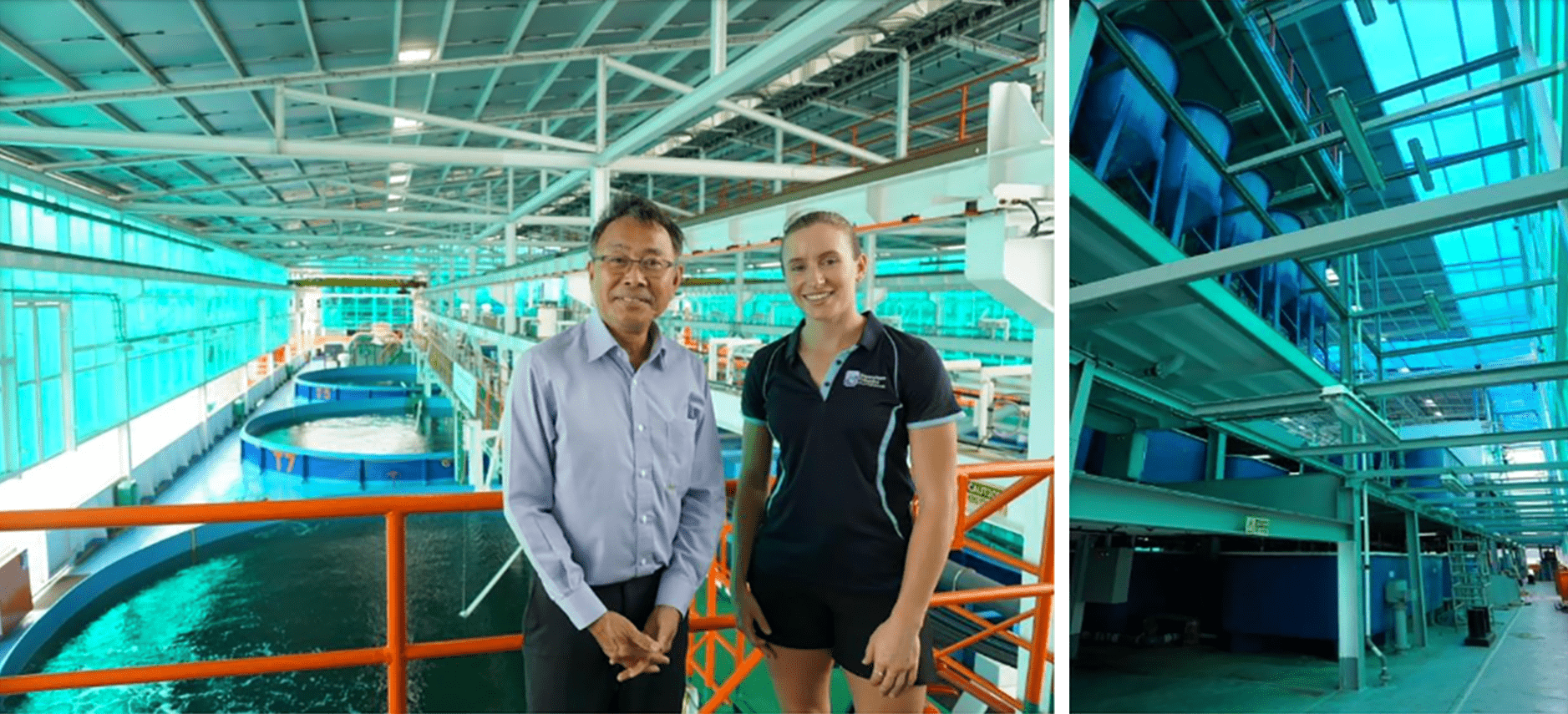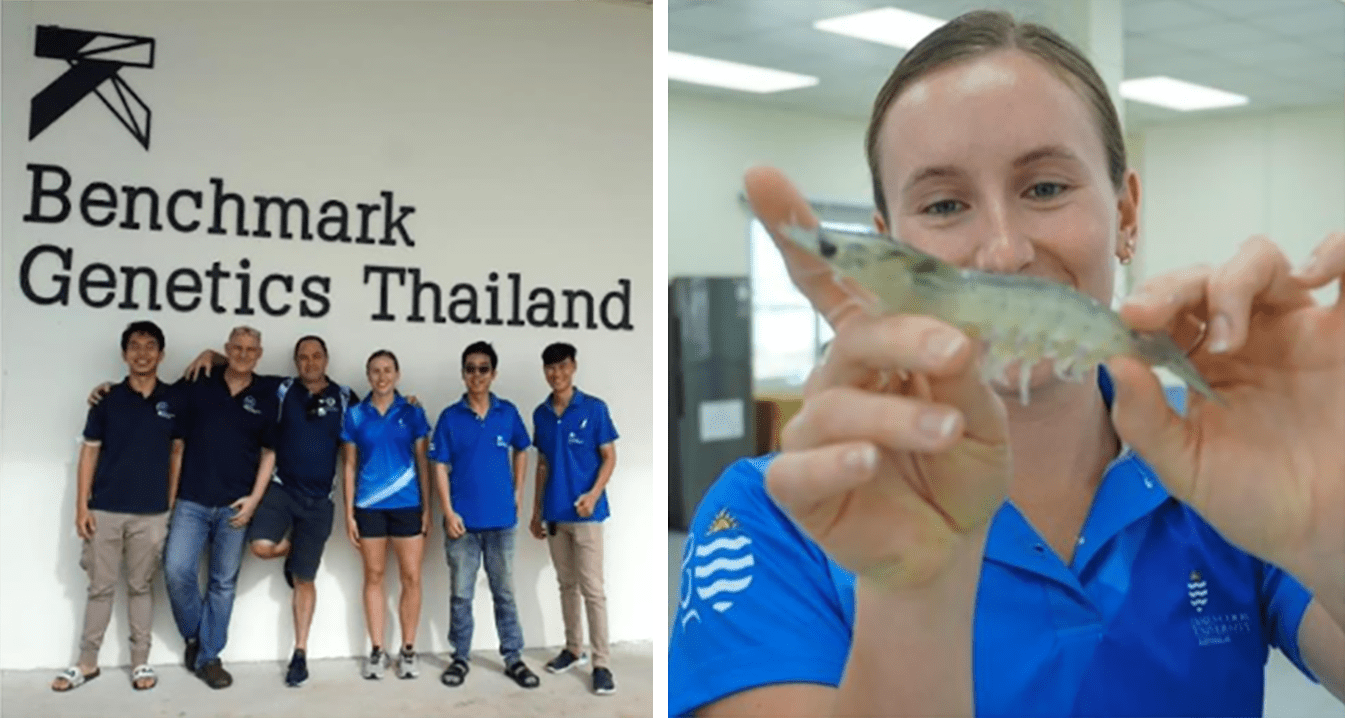

Building resilience in shrimp aquaculture
October 17, 2023

The Crawford Fund’s highly sought after Student Awards are one way we support and encourage the next generation of Australians into study, careers and volunteering in international agricultural research.
The awards are funded by our State and Territory Committees and made possible by organisations including ACIAR, international centres, Australian and overseas universities and NGOs who host our awardees. The next round of awards will open in November!
In 2022, we announced 14 tertiary students had won awards to gain international agricultural research experience and expertise. With the resumption of global travel, many of these NextGen Student Awardees have travelled overseas to undertake projects, with quite a few involved in our Instagram campaign, reporting when they are on the ground.
Phoebe Arbon from James Cook University travelled to Japan, Singapore and Thailand for her project biosecurity and genetic improvement for disease resistance in large scale shrimp aquaculture. The research involved collaboration with INVE Aquaculture. She shares her experience below.
Global shrimp (prawn) production is significantly challenged by infectious diseases, with annual losses to production capacity of up to 40%. Fortunately, the Australian shrimp farming industry is naive to most of the pathogens that effect overseas production. However, since the outbreak of Whitespot syndrome virus (WSSV) in Southeast Queensland, which devastated regional production, the Australian shrimp farming industry has prioritised biosecurity and the pursuit of domesticated and genetically selected disease resistant stock.
“My PhD project aims to develop foundational knowledge around the impact, importance, and management of viral pathogens in Australian shrimp production to help achieve this pursuit. Through the Student Award, I travelled to Japan, Singapore and Thailand to experience and observe first-hand, on-farm management of emergent disease issues, operational biosecurity, infrastructure requirements and genetic selection technologies in industrial-scale international shrimp aquaculture,” said Phoebe.
“Throughout my trip I also visited facilities culturing finfish and molluscan species, such as those using technology-driven intensive sea-based barge aquaculture systems, to learn about the latest technology related to farming in a biosecure marine environment.”

Phoebe found that biosecurity adoption and application throughout East Asia is highly diverse, ranging from farms that routinely experience mass mortalities due to disease and implement very limited biosecurity protocols, to highly bio-secure production facilities that refuse visitor entry due to their strict biosecurity and the potential contamination risk we posed to their operations. Through discussions with farmers, Dr. Shinn and Dr. “March” Wongwaradechku about the ubiquity and severity of diseases on shrimp production throughout SE Asia, the importance of Australia’s rigorous maintenance of aquatic biosecurity was clarified. Incursion of such exotic pathogens into Australia’s production systems would unquestionably devastate our prawn farming industry and must be vehemently protected against.
“Learning from farmers and professionals in these regions about their strategies to mitigate the impacts of disease, and how they are recovering their historically disease eroded shrimp production volumes provided great insight on how Australian researchers (like myself) and prawn producers can build resilience against future disease threats.”
“The knowledge and experience gained during the Award has provided me with a globally relevant perspective and broadened understanding of the impacts of infectious diseases, and how they are currently managed in aquaculture,” she said.
“The Award has allowed me to gain critical experience, insights, and expertise on disease mitigation, management, and resilience from farmers and leading experts in the field and develop invaluable research connections throughout Eastern Asia. These learnings will be passed on through my PhD studies and future research pursuits to my peers, colleagues, and the Queensland shrimp farming industry to support continuing development and resilience against future disease threats of the industry,” she concluded.




 0
0